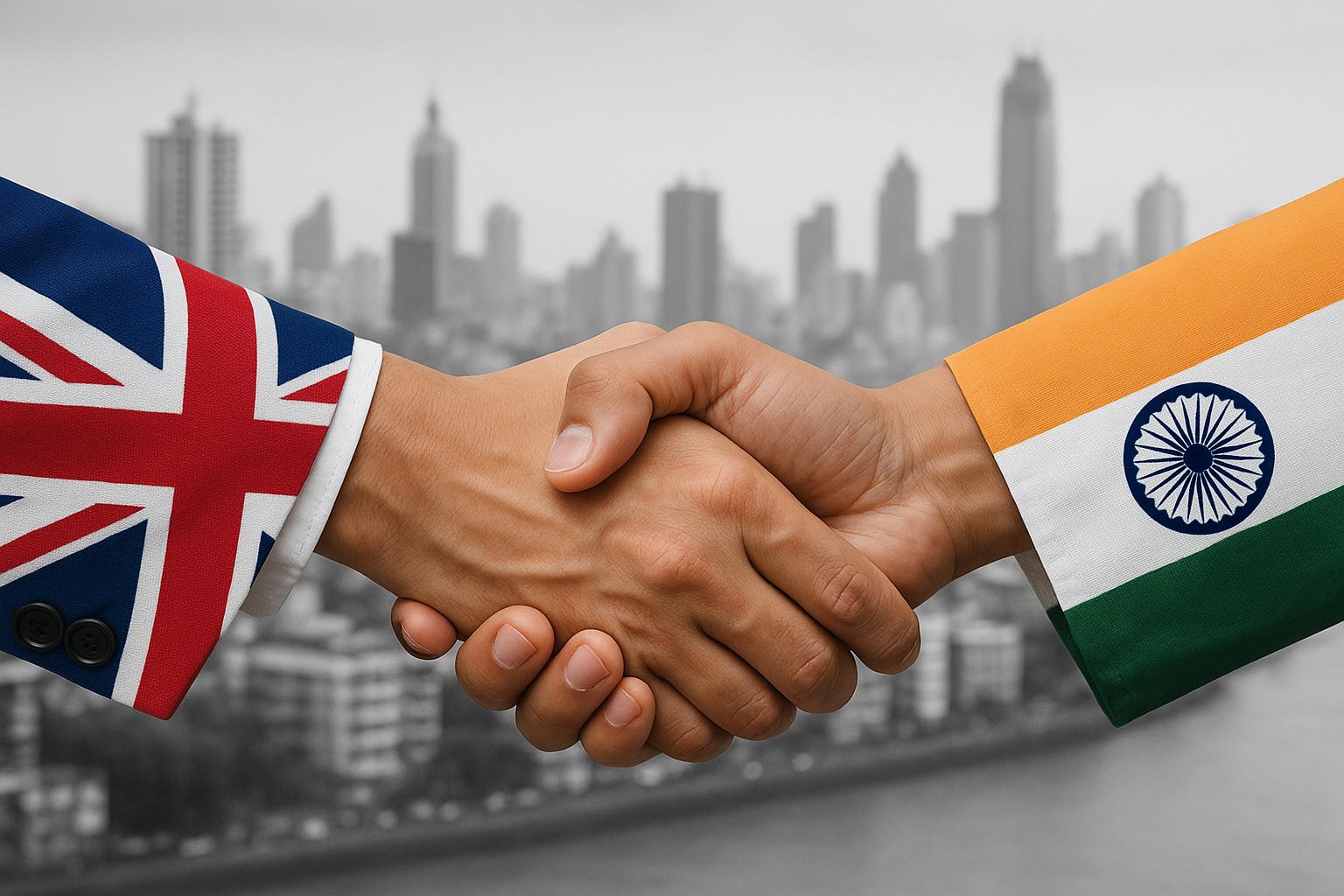British Prime Minister Sir Keir Starmer has firmly rejected calls from business leaders for expanding UK visa access for Indian workers, emphasizing that providing more visas is “not part of the plan” as he embarks on a trade mission to India. This stance marks a clear signal amid ongoing efforts to deepen economic ties between the two countries following the UK-India free trade agreement signed in July. Starmer's visit to Mumbai, accompanied by a delegation of over 100 business chiefs, university leaders, and cultural figures, underscores the UK government's focus on harnessing the trade deal’s potential rather than altering immigration policies.
The free trade agreement, hailed as the most significant UK post-Brexit deal and aiming to boost bilateral trade by £25.5 billion by 2040, lowers tariffs on key British exports like whisky—expected to see reductions from 150% to 40% over the next decade—and other goods including textiles and automobiles. Starmer described the pact as a “launchpad for growth” and highlighted the importance of swift implementation to realise economic opportunities. Business leaders on the trip represent major firms such as Rolls-Royce, British Telecom, Diageo, British Airways, and the London Stock Exchange, reflecting the broad scope of the UK’s economic ambitions in India.
Despite pressure from sectors eager for greater access to highly skilled Indian talent, particularly in technology and engineering, Starmer maintained the government’s current immigration framework. Speaking en route to India, he reiterated that expanding visa quotas was not on the agenda, aligning with his cautious approach to immigration amid domestic political concerns. This contrasts with policies in countries like the U.S., where visa programs have historically been more accommodating to Indian professionals. Starmer stressed that the trade deal focused on “business-to-business engagement and investment” rather than visa liberalisation.
On deportation policies, Starmer noted that the UK’s relationship with India is smooth, thanks to a well-functioning returns agreement. The agreement has facilitated the return of thousands of individuals, which the Prime Minister described as a “non-issue” in the context of UK-India relations. He also indicated that broader government discussions are underway about linking visa eligibility to a country's cooperation on deportations, though this remains a general policy matter and not specific to India.
The prime minister’s trip includes discussions on sensitive geopolitical issues as well. He was asked about Indian Prime Minister Narendra Modi's relationship with Russian President Vladimir Putin, particularly in the context of India’s continued oil purchases from Russia despite Western sanctions. Starmer distanced himself from any similar gestures, pointing out that the UK has led international efforts to clamp down on Russian energy shipments via the shadow fleet. Addressing these topics signals the multifaceted nature of the visit, balancing trade, diplomacy, and security concerns.
The visit coincides with the Conservative Party conference back in the UK, while Starmer and his delegation engage with their Indian counterparts to ratify and implement the free trade deal, expected to come into effect by next year. The UK also announced expanded air connectivity with India, including a new British Airways flight from Delhi to Heathrow and a direct Manchester to Delhi route by IndiGo, designed to support increased business and cultural exchanges.
Starmer also faces calls to raise the case of Jagtar Singh Johal, a British Sikh activist detained in India since 2017, with PM Modi. Johal was acquitted of certain charges earlier this year but remains subject to federal accusations. His family has urged the Prime Minister to advocate for his release, leveraging recent successful interventions in other British nationals’ cases abroad.
Overall, the visit highlights Starmer's balancing act: promoting the UK-India trade partnership’s economic potential while maintaining a firm stance on immigration and navigating complex diplomatic issues. The Prime Minister’s approach underscores the UK government's priority to boost trade and investment without loosening visa policies amid domestic political sensitivities.
📌 Reference Map:
- Paragraph 1 – [1], [2], [5], [6]
- Paragraph 2 – [1], [3], [4], [6]
- Paragraph 3 – [1], [2], [5], [6], [7]
- Paragraph 4 – [1], [2], [6], [7]
- Paragraph 5 – [1], [6]
- Paragraph 6 – [1], [3], [7]
- Paragraph 7 – [1]
Source: Noah Wire Services
